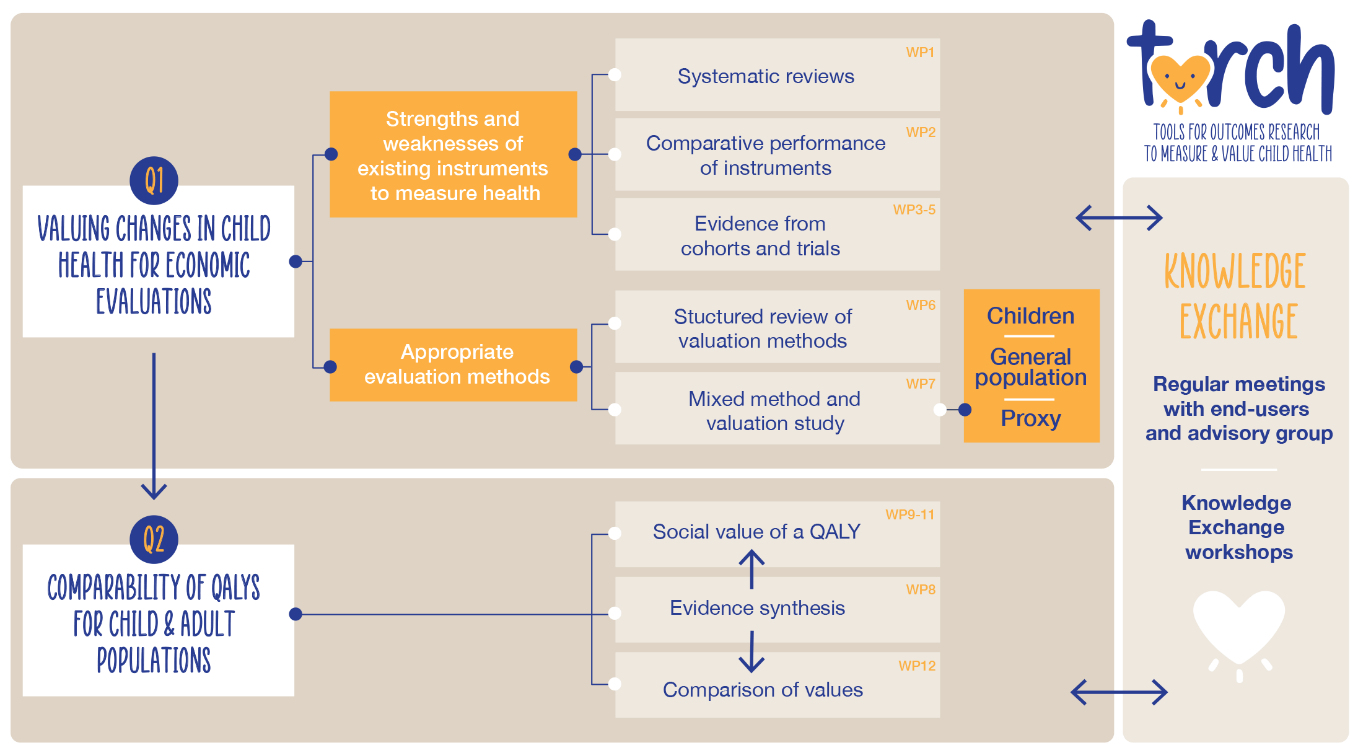We have robust economic and health technology assessment tools that help inform Government decisions about which medicines and medical services to fund. These compare the costs and benefits of different treatments, measuring benefits in terms of improvements in length of life and quality of life, captured in Quality Adjusted Life Years (QALYs). But these metrics have been designed predominantly for adults.
Acknowledging this gap, the Tools for Outcomes Research to Measure and Value Child Health (TORCH) study received funding from the Australian Government Medical Research Futures Fund (MRFF) to develop and refine methods to measure and value child health. The methods developed will generate empirical values to inform policy.
The TORCH study addresses two main overarching research questions:
(i) How to value changes in child health for economic evaluation?
(ii) How do QALYs for child populations compare with QALYs for adult populations?
The study involves meaningful collaborations between researchers, policymakers, clinicians, child health organisations, and young people to co-design the research. These collaborations will ensure that research outcomes are fit-for-purpose and enable knowledge exchange between researchers and policymakers.
The diagram below summarises the work packages that address our two research questions.
TORCH has focused to date on two key questions in the first 18 months.
The other major stream of work has focused on social values drawing on multiple sources of evidence including a systematic review of existing evidence in the literature regarding whether QALYs for children and young people are valued differently to adults; a qualitative study involving interviews with young people, adults, and participants in Pharmaceutical Benefits Advisory Committee (PBAC) and Medical Services Advisory Committee (MSAC) Health Technology Assessment (HTA) processes which asked: are Quality Adjusted Life Year (QALY) gains in children of similar value to adults?; and a discrete choice experiment which focuses on eliciting preferences regarding prioritisation of children and young people compared to other age groups and other characteristics over which people may hold a social value.
Going forward, the team will continue the work on social values work and will also shift gears to select an instrument/s based on the evidence of the strengths and weaknesses of instruments to measure quality of life in children from workpackages 1-5 and will undertake an empirical study in workpackage 7 to generate Australian value sets for those instrument which can be used to generate QALYs for use in economic evaluation. We will also test different methods to elicit such values sets. This will draw on a recent TORCH publication on the
‘Methodological challenges surrounding QALY estimation for paediatric economic evaluation’ at BioMed Central and a
systematic review of methods to value child quality of life.
The international TORCH team of researchers and clinicians span seven universities across Australia and the United Kingdom and is led by our very own Professor Emily Lancsar. As a team, they bring together cross-cutting research methodologies to develop innovative solutions to measure and value child health.
Research team: Emily Lancsar and Elisabeth Huynh (ANU), Kirsten Howard, Martin Howell, Alison Hayes, Germaine Wong (University of Sydney), Jonathan Craig (Flinders University), Stavros Petrou (Oxford University), Joanna Coast (Bristol University) and Cam Donaldson (Glasgow Caledonian University).

